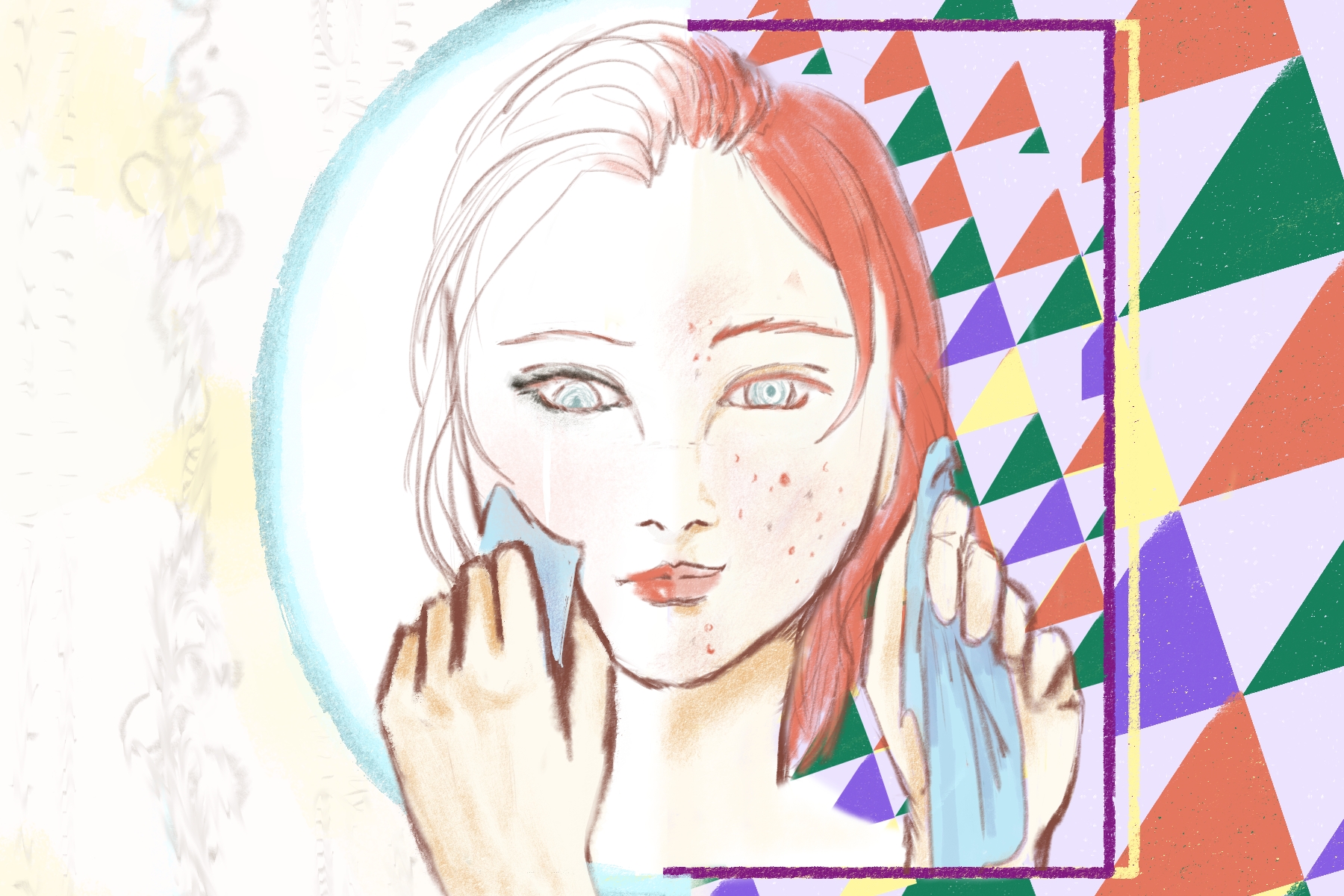“Skin positivity,” as the name suggests, encompasses the idea of embracing different kinds of skin regardless of condition. As a sub-movement of body positivity, which embraces diversity of all body types, skin positivity shines light on acne, rosacea, eczema, psoriasis, vitiligo and other skin conditions.
The movement has made huge strides over the past few years in hopes of normalizing imperfect skin. That isn’t to say that imperfect skin is necessarily unhealthy skin. Chronic conditions like rosacea, eczema and psoriasis can be treated but have no cure. It’s difficult to trace the exact cause of acne and it varies with everyone; however, it’s a large misconception that acne is a reflection of bad hygiene or poor dietary habits. Skin positivity embraces skin in its natural state, whatever that may look like for each individual.
Over time, a series of movements have emerged to bring attention to the beauty standards of skin. In 2015, Em Ford filmed “You Look Disgusting,” portraying her audience’s reaction to her natural skin versus her skin with makeup. Comments revealed disgust at Ford’s acne and then criticism for being “fake” when she covered her acne. Ford posted the video to demonstrate the unrealistic and hypocritical beauty standards that women are often held to.
In 2018, Ford expanded her ideas with the campaign “REDEFINE PRETTY,” which tested whether women felt more validated when presented with barefaced models in comparison to retouched models. She worked with Professor Welch who looked at their brain responses. They found that when presented with airbrushed photos, the amygdala (which is responsible for triggering fear or anger) lit up. The campaign hoped to bring attention to the negative effects of beauty standards for better media representation.
The year 2018 also birthed other skin positivity campaigns. Model Louisa Northcote started #FreeThePimple by posting a makeup-free selfie on Instagram. She was met with immense support and a community of others who began posting their own skin positive selfies under the hashtag.
A year later, Northcote was asked if she believed the trend sparked a change in the modeling industry. She responded: “I see a lot more body positivity, which is amazing, but not necessarily much more skin positivity. I was in Boots the other day though and I saw makeup campaigns with unedited models. You could see their pores, I mean it wasn’t acne, but at least it means we are going somewhere. I think we have come a long way but I still don’t think the modeling industry is there yet.”
Similarly, model Leia Immanuel also took to Instagram to bring attention to the skin stigma. She posted photos of her skin with the words “retouch” and “why don’t you cover them?” on top of acne spots. In 2019, the skincare brand “Blume” also began the campaign “Celebrate Skin,” which used models with acne to promote their products. Additionally, the film industry made progress toward skin positivity and diverse beauty representation when Saoirse Ronan and her makeup artist decided to skip retouching Ronan’s blemishes.
https://www.instagram.com/p/BYoXmL-HplR/
Dermatologist Shari Marchbein said that “acne absolutely can adversely affect quality of life, self-esteem, and mood just like other chronic health conditions.” Additionally, surveys have found alarming rates of individuals who experience anxiety and avoid social gatherings due to their skin.
These skin positivity movements are hugely important as imperfect skin is often stigmatized. Beauty is usually associated with clear skin, however, the expectations of our skin complexion can be unattainable. Cosmetic Dermatologist Dr. Bunting noted that often when clients make appointments, they come in asking for “flawless skin” and said this expectation is “somewhat unrealistic.”
Attitudes toward skin are changing, but there’s still a long way to go. The beauty industry uses clear-skinned models as the standard, yet acne occurs in 85% of teens and young adults. Furthermore, there are no skin conditions that are well-represented in the media. Retouched models and advertising affect people’s perception of beauty and sends the message that clear skin is the only skin, making those with blemishes feel like “they are ‘not normal’ and therefore negatively viewed by others.”
Along with these skin positivity campaigns, there have been setbacks. In 2018, L’Oreal fired beauty blogger Kadeeja Khan, saying the company “can’t be involved with people with skin issues.” Despite the claims that this was a misunderstanding, Khan wasn’t invited back to the company. Similarly, Dove’s “Real Women” beauty campaign in 2010 called for “three or four real women,” but stated, “they must have flawless skin.” Some have noted that the profits of cosmetic companies depend on the belief that imperfect skin needs to be corrected. While this may be true, the beauty industry should be shifting away from fixing natural processes (like aging) and emphasizing perfectly clear skin, and instead aim for products that nourish our skin and keep it healthy.
Healthy skin looks different for everyone and that’s something the skin positivity movement is trying to highlight. When Stylist interviewed women on their experiences with acne, one of them mentioned “people’s attitude to acne is so strange. They would never weigh in on a disability, yet they are happy to comment openly on a skin condition.”
Unfortunately, this is often a common experience shared by those who struggle with various skin conditions. Some hold good intentions but are still constrained by the belief that “good skin” equates to clear skin, and “bad skin” equates to anything else. These kinds of associations can bleed into people who suffer from any skin condition and result in extreme measures (like harsh antibiotics or strong, irritating products) in an attempt to gain clear, “good skin,” when perhaps they already have healthy skin.
As said by dermatologist Dr. Anjai Mahto, “Just as the body positivity movement led to diverse shapes and sizes being celebrated, skin positivity has the power to redefine our expectations around our skin.” Everyone has different skin and will have their own way of dealing with it. These movements are pushing skin positivity forward; however, there’s progress to be made toward the end goal: a world where all skin is accepted, without criticism, the way it is.

















